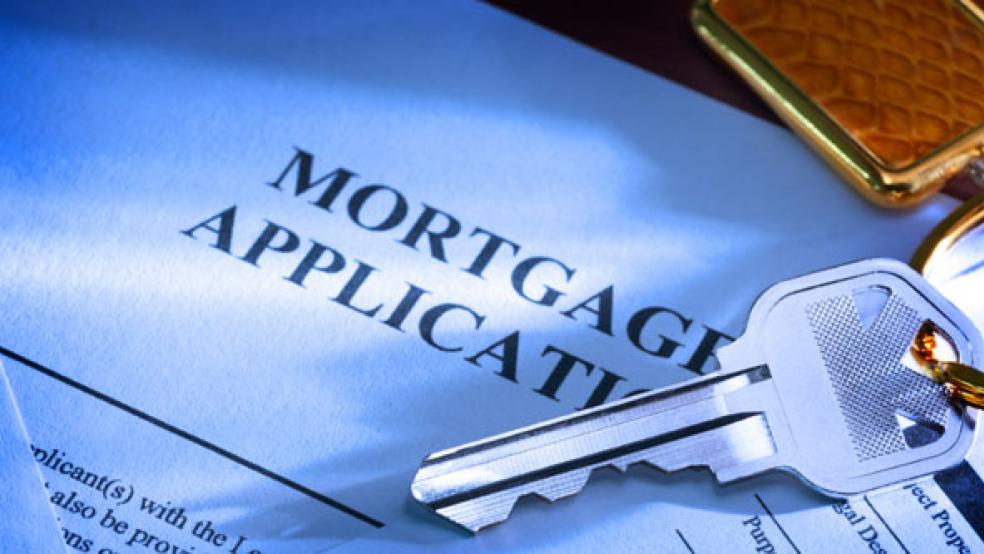After the Fed’s announcement Wednesday that it would end its historic $3 trillion bond-buying program, mortgage rates predictably began to rise.
The good news is that they were rising from the lowest rates of the year, after tumbling through most of October. At just over 4 percent, today’s mortgages rates still remain extremely low by historical standards. In 2008, before the housing busts, rates were around 6.5 percent.
Related: The Hidden Risk of Home Equity Loans
Millions of Americans have already taken advantage of the opportunity to refinance at record-low rates these past few years. Despite this environment, one in five households that could have refinanced in recent years had not done so, according to a recent paper published by the National Bureau of Economic Research. The cost to those homeowners: about $11,500 each over the life of the mortgage.
If you’ve been procrastinating or if you’ve only just gained enough equity to refinance, this may be your last shot.
The Fed’s decision, combined with the economy’s continued positive momentum, means the mortgage rate upward climb may not end anytime soon. The Mortgage Bankers Association predicts rates will reach 5.1 percent by the end of next year and 5.8 percent by the end of 2016.
“The window for refinancing may not be open for that long,” said Bill Hampel, chief economist of the Credit Union National Association. Homeowners are taking note: Nearly two-thirds of all mortgage applications last week were to refinance.
Related: 7 Pros and Cons to Refinancing Your Mortgage
Here’s how to figure out whether this move is right for you.
Run the Basic Numbers
Use a mortgage calculator to determine how much your monthly mortgage payment would change based on a new lower rate. Then factor in closing costs, which are typically 2 percent to 5 percent of the value of your mortgage.
Divide the total amount of closing costs by the amount you’ll save each month to determine how many months it will take to recoup your fees. If it will take less than three years, and you plan to be in your house for more than five years, it’s probably a “no-brainer” to refinance, advises Hampel.
The decision is a bit trickier if it will take you longer than three years to break even. If you won’t recoup your costs for six years – then refinancing probably doesn’t make sense.
Related: Refinancing Before Retirement: It’s Complicated
Consider Other Factors
What kind of mortgage do you have? If you’re in an adjustable-rate mortgage and plan to stay in your home for a long period of time, it may be worth refinancing at today’s rates to lock them in for the long term, even if it means making a higher monthly payment in the short term.
Refinancing also often means resetting the clock on your mortgage. If you’re decades into paying off a 30-year mortgage, you may not want to commit to another 30 years of housing debt, even if it’s at a lower rate. You might consider instead a 15-year loan, which has a lower rate and higher monthly payments but will have you owning your house outright much sooner. “Think about you particular situation not just now, but five, ten, twenty years from now,” said Avani Ramnani, director of financial planning and wealth management at Francis Financial in New York.
Another incentive to refinance is the chance to merge loans. Refinancing lets you consolidate a second mortgage or a home equity loan with your home mortgage, which can save money by allowing you to pay one low rate on the entire amount, instead of a low percentage on your primate mortgage and a higher one on the other loans.
Get Ready to Jump Through Hoops
Banks are stilled scarred from the housing bust and are dealing with significant changes to the regulatory environment, so lending standards are much tighter than they were in the past. Even former Fed chair Ben Bernanke recently admitted to having had his mortgage refinance application rejected.
To get the best rate, you’ll need excellent credit and lots of documentation of your income and assets. The average credit score for closed loans in September was 726, according to Ellie Mae.
Finally, shop around. “Talk to a big bank, talk to a little bank, talk to a mortgage broker,” says David Reiss, a professor of real estate finance at Brooklyn Law School. The gap between the best and the worst mortgage deals can be as much as a full percentage point.
Top Reads from The Fiscal Times:




